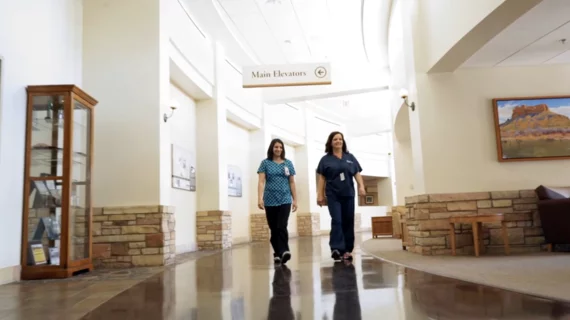Kaiser Permanente staved off what would have been the largest private-sector nursing strike after reaching an agreement with 21,000 unionized Northern California nurses.
Under terms of the agreement, nurses will see a 22.5% pay increase. The strike was scheduled to begin on Monday, Nov. 21, and it would have been the largest private-sector nursing strike in U.S. history, according to the nurses union, California Nurses Association/National Nurses United (CNA/NNU). The Northern California nurses have been in negotiations with Kaiser since June 2022, and on Sept. 1, they were joined by nurses at Kaiser Permanente Los Angeles Medical Center (LAMC) in holding informational pickets for a total of more than 22,000 nurses.
The new contract, which squashed threats of the strike, includes several provisions in addition to a significant pay increase, including:
- Health and safety provisions, from personal protective equipment, screening for infectious disease and PPE protections when caring for patients who are confirmed or suspected of having COVID-19
- Comprehensive workplace violence preventions, including expanding workplace violence prevention plans to all sites of care
- More than 2,000 new registered nurse and nurse practitioner positions
- Education investments, including increase tuition reimbursement
- Health benefit provisions that will help recruit and retain nurses
- Equity and inclusion additions, including the creation of a new regional Equity, Diversity, and Inclusion Committee with two nurses from each facility
“We are very pleased with this new contract, which will help us recruit new nurses and retain experienced RNs and nurse practitioners,” CNA President Cathy Kennedy, RN in the neonatal ICU at Kaiser Permanente Roseville Medical Center, said in a statement from the union. "We not only won the biggest annual raises in 20 years, but we have also added more than 2,000 positions across our Northern California facilities. This will ensure safe staffing and better patient care."
According to Kaiser, the high pay increase is reflective of greater economic conditions. Hospitals and health systems are facing extreme financial challenges this year, according to multiple reports that cite higher costs, inflation, declining revenue and staffing shortages as significant pain points.
"The tentative agreement is driven by the changing economy, including inflation, significant changes in the marketplace and our commitment to providing our employees with excellent pay and benefits to attract and retain the best nurses," Kaiser said in a statement.
The Northern California RNs and NPs will vote to ratify the new four-year contract over the next few weeks, the union stated.
Kaiser Permanente has faced several strikes before with workers negotiating over contracts. It is s one of the largest nonprofit healthcare plans in the United States, with more than 12 million members.

